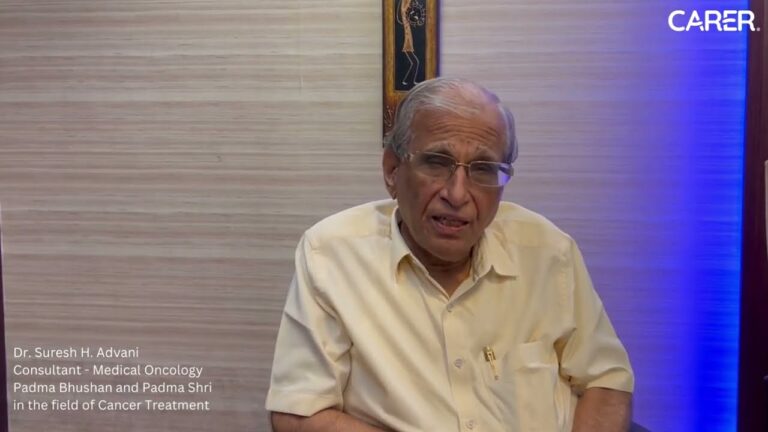The Importance of Exercising During Cancer Treatment – Insights from Dr. Advani

Cancer treatment is a challenging journey, often accompanied by fatigue, weakness, and emotional distress. While rest is important, too much inactivity can actually slow down recovery and worsen side effects. Renowned oncologist Dr. Advani emphasizes the critical role of physical activity during and after cancer treatment, debunking the common myth that patients should avoid exercise. Although rest is necessary, excessive inactivity can exacerbate side effects and delay recovery. Renowned oncologist Dr. Advani dispels the idea that cancer patients should refrain from exercising by highlighting the importance of physical activity, before and after cancer treatment.
Don’t Rest Too Much – Move More!
One of the most common pieces of advice given to cancer patients is, "Don’t do this, don’t do that—just rest." However, Dr. Advani strongly disagrees with this approach.
"The reality is, normally what they tell the patient is—please don’t do this, don’t do that, don’t walk, take rest. That’s the usual advice by relatives to the patient, and patients are troubled because of that. In fact, what we do is we tell the relatives, don’t do this at all! Encourage them to walk and move as much as they can. That’s the only way to keep the patient happier and healthier."
Why Exercise Matters During Treatment
Many patients experience weakness, especially after chemotherapy or radiotherapy. While it’s natural to feel fatigued, prolonged rest can actually delay recovery.
"The commonest thing that happens is the patient feels a little weak, particularly after chemotherapy or radiotherapy. The recovery will be much slower if they take more rest—that’s very clear. I always tell my patients, please do everything that you can do. There’s nothing that I’ll tell you not to do. Go for a walk, go for swimming, go for exercise, indoor cycling—you can do all other exercises, yoga, and more. Everybody has to do it."
"Walk at Least 5 Kilometers a Day"
Dr. Advani’s Prescription for Faster Recovery
Dr. Advani encourages his patients to stay active with a simple yet effective routine:
"I always advise them—walk at least five kilometers every day without fail. And they come and tell me, ‘Oh, I’ve done two kilometers,’ or ‘I ran three kilometers.’ They keep a watch on that. Now, that allows them to recover fast."
On the other hand, patients who take excessive rest often struggle with prolonged weakness and weight gain.
"People who take more rest always come back after six months saying, ‘I’m feeling very weak, and I’ve put on weight.’ I tell them, the reason is simple—you’re not doing exercise. So, go back and take the exercise."
Exercise May Reduce the Risk of Cancer Recurrence
Beyond improving energy levels and strength, exercise may also play a role in reducing the risk of cancer recurrence, particularly in breast cancer patients.
"There’s at least some data that in breast cancer, the risk of recurrence is less if the patient is walking five kilometers every day after treatment. That data indicates that a good amount of exercise allows fat consumption and therefore reduces the risk of relapse."
Stay Active, Stay Strong
The message is clear—movement is medicine. While cancer treatment can be exhausting, incorporating moderate exercise like walking, yoga, or cycling can significantly improve recovery, mental well-being, and long-term health outcomes.
As Dr. Advani wisely advises:
"Don’t restrict yourself—move as much as you can. Your body will thank you for it."
If you or a loved one is undergoing cancer treatment, consult your doctor before starting any new exercise routine. But remember—staying active isn’t just an option; it’s a vital part of healing.
Stay strong, stay moving!







